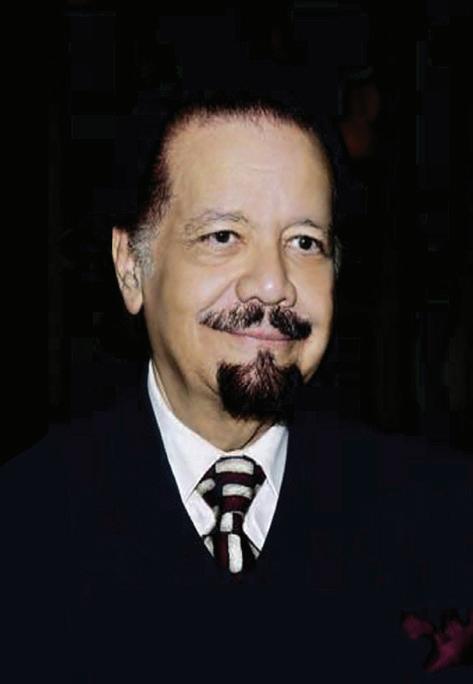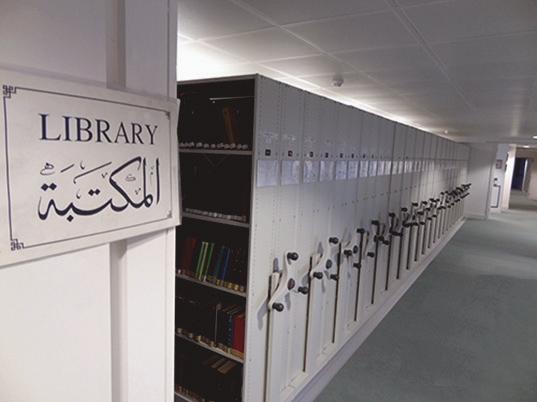Newsletter No. 19
Winter 2020
Al-Furqān and It's Centres Al-Furqān’s Structure
Al-Furqān Islamic Heritage Foundation Al-Furqān Islamic Heritage Foundation is a not for profit Foundation registered in England and Wales (Company No. 2329628). It was established in London, in 1988, by the Yamani Cultural and Charitable Foundation; HE Sheikh Ahmed Zaki Yamani is the founder of both of these foundations.
The Board of Directors The Board of Directors is the highest body within Al-Furqān. It consists of the Chairman and three other directors. It’s responsibilities include overseeing management, appropriate use of funding, implementing the organisation’s goals, and shaping the organisation’s vision and mission.
Al-Furqān’s Vision
The Executive Management The Executive Management is the highest level of organisational management, executing the Foundation’s dayto-day responsibilities. It holds specific executive powers conferred with and by authority of the Board of Directors.
To be a leading Foundation in preserving and studying the Islamic written heritage. Al-Furqān’s Mission To survey, preserve, study and publish the Islamic written heritage, as well as assist and promote the research in its fields.
Al-Furqān’s Offices Al-Furqān’s headquarters is in London. It also has two other offices, one in Jeddah - Saudi Arabia, and another in Cairo - Egypt.
Al-Furqān’s Aims and Objectives
• To initiate, promote and support research in the field
Al-Furqān’s Centres
of Islamic heritage.
• To assist in the preservation and restoration of the
Al-Furqān Islamic Heritage Foundation was established initially with the aim to document and preserve the Islamic written heritage, principally through its work in surveying, imaging, cataloguing, editing, studying and publishing Islamic manuscripts. But, with time, its scope of activity has expanded, and it has become a Foundation consisting of 3 centres under one umbrella, i.e.:
Islamic written heritage.
• To raise awareness on the richness of the Islamic heritage, its role and importance.
To achieve its aims and objectives, the Foundation pursues the following activities: o
Editing and publishing Islamic manuscripts of particular significance.
1. The Centre for the Study of Islamic Manuscripts (Manuscript Centre)
o
Publishing studies, bibliographical and encyclopaedic works in the field of Islamic heritage.
The Manuscript Centre’s Mission
o
Organising training courses on various aspects of Islamic heritage.
o
Holding academic seminars, conferences and lectures in order to stimulate discussions and action in the field of Islamic heritage.
o
The Manuscript Centre’s mission is to document and preserve the Islamic written heritage through surveying, imaging, cataloguing, editing and publishing Islamic manuscripts, which constitute a significant part of the Islamic heritage. The Manuscript Centre’s Founding / Advisory Board
Establishing a reference library with the main research tools necessary for the study of the Islamic heritage.
The Founding / Advisory Board of the Manuscript Centre was a body of outstanding academics and scholars in the field of Islamic written heritage, such as: history, history of science, codicology, paleography and Islamic history. They gathered in London, in December 1991, with the aim to:
o Developing an online platform to enable the schol-
ars, researchers and students of the Islamic civilisation and heritage all over the world easier access to the hidden treasures of the Islamic heritage.
✓ Establish an overall strategy and guidelines. ✓ Define the Manuscript Centre’s fields of activities.
Al-Furqān’s Motto
The Manuscript Centre’s Founding / Advisory Board consisted of the following members: - HE Sheikh Ahmed Zaki Yamani, Chairman - Sheikh Abdel Aziz al-Rifaʿi
“Glorious Past, Brighter Future”
28
WWW.AL-FURQAN.COM










